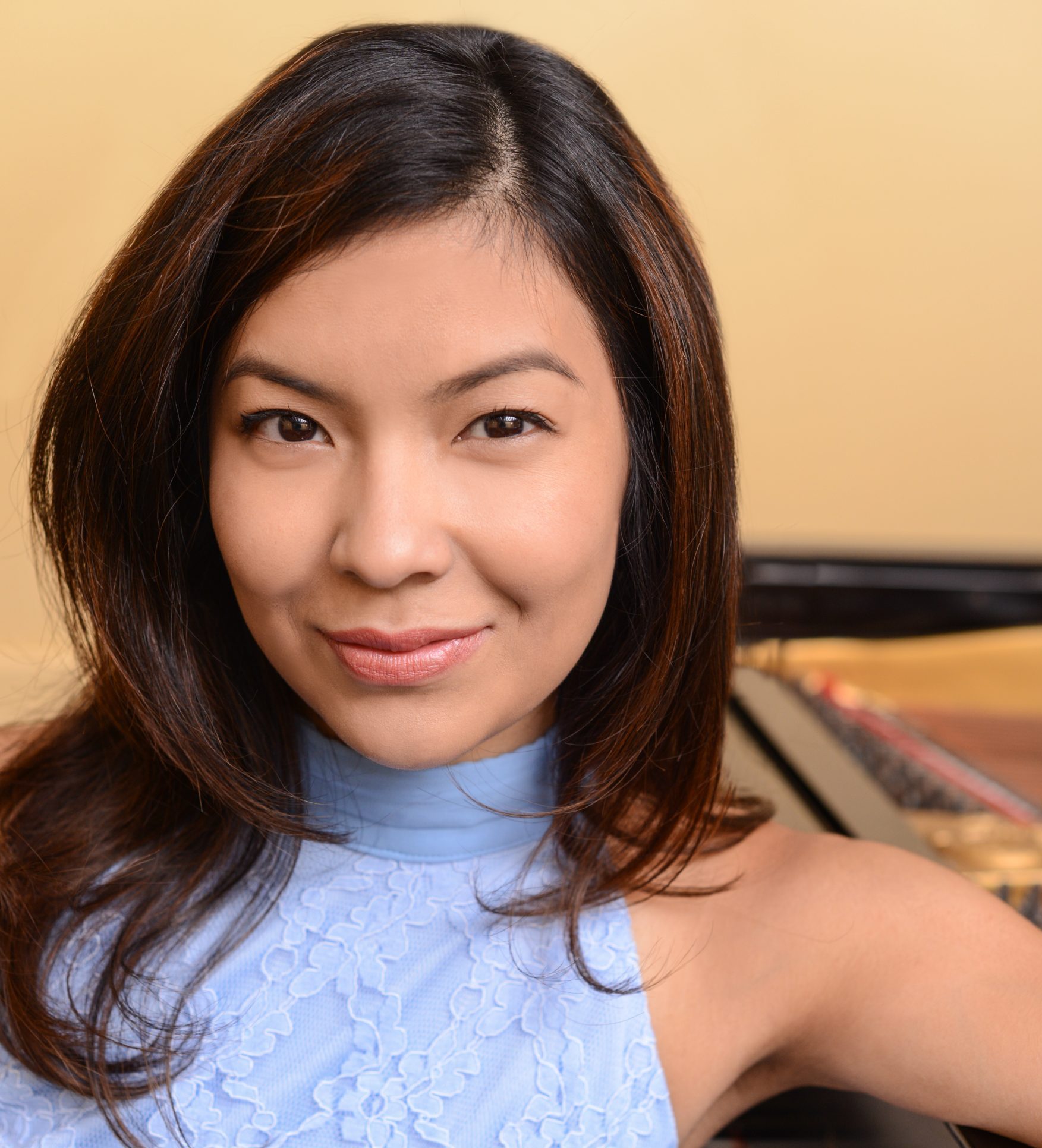Alumni Spotlights – Melody Quah
Melody Quah, (she/her)
(DMA ‘17, piano)
Pianist, Music Educator
 Described as a “poet with titanium fingers” by the Vancouver Sun, Melody Quah has performed extensively on stages across Asia, Europe, Australia, and North America, as well as her native Malaysia. Quah’s music career encompasses a wide range of activities—soloist, recitalist, collaborative pianist, chamber musician, educator, adjudicator, masterclass clinician, and music director. She holds graduate degrees from the Peabody Institute, Yale School of Music, and The Juilliard School. Quah currently serves as Assistant Professor of Piano at Penn State University, and as Vice President for the Pennsylvania Music Teachers Association. She is a Yamaha Artist.
Described as a “poet with titanium fingers” by the Vancouver Sun, Melody Quah has performed extensively on stages across Asia, Europe, Australia, and North America, as well as her native Malaysia. Quah’s music career encompasses a wide range of activities—soloist, recitalist, collaborative pianist, chamber musician, educator, adjudicator, masterclass clinician, and music director. She holds graduate degrees from the Peabody Institute, Yale School of Music, and The Juilliard School. Quah currently serves as Assistant Professor of Piano at Penn State University, and as Vice President for the Pennsylvania Music Teachers Association. She is a Yamaha Artist.
Tell us about your journey to your current career path. What were the pivotal moments? What surprised you?
By the time I was fourteen years old, having grown up in the small country of Malaysia, it became clear that my options for serious piano study lay elsewhere. So, I moved to Sydney, Australia with my mother to attend an arts-specific high school. I then moved to Vancouver, Canada for undergraduate studies, followed by New York City for graduate school. For my family, my love of music, and my future career, these ‘pivots’ to different locations across the world felt like leaps of faith. I found myself continuously surprised at my own willingness to venture forward, even under such opaque circumstances.
What opportunities did you take advantage of in school that helped you to build helpful skills and experiences?
Immersing myself in collaboration was perhaps the most beneficial aspect of my schooling. By the time I graduated with my doctorate, I had played an enormous amount of the standard piano chamber music repertoire and accompanied most all strings and brass. This not only gave me a huge amount of repertoire experience, but also the opportunity to work with hundreds of different people with different personalities, abilities, stylistic approaches, rehearsal techniques, and expectations. Collaboration breeds collegiality.
How has your network and/or community impacted your professional journey?
I was energized when those in classical music finally recognized the need to cultivate a more diverse, inclusive repertoire. Because even though many countries in Southeast Asia still have a modest appreciation for classical music, there is a small, but dynamic cohort of artists from the region with voices that deserve to be heard. As such, a significant aspect of my professional journey has been commissioning solo piano works by composers from Southeast Asia to contribute to a more representative body of piano literature.
What is an obstacle or challenge you’ve faced in your career journey, and how did you overcome it?
After giving birth to my daughter, I developed a case of De Quervain tenosynovitis and experienced significant pain in my thumbs and wrists. Unbeknownst to me at the time, this condition is quite common amongst pregnant and postpartum folks. So not only was I navigating all the demands of motherhood for the first time, physical and otherwise, but I also had to find a way to rehabilitate my hands at the piano. I did everything I could to help myself—slow, methodical, timed practice sessions; wrist braces; medical treatment; daily stretches. With time and patience, things improved!
Have your goals and priorities changed over time? If so, how?
My goals and priorities have not changed; they’ve broadened. To carve out a career in music takes singular focus. All the eggs are in the ‘making it’ basket. Now, I still want to achieve my career goals—commissioning new works, performing, collaborating with colleagues, building an inclusive studio of dedicated young professionals. But I also want other things as well—not music things, like being at home with my family, reading a book for pleasure, and making time to cultivate long-lasting friendships.
Hear more from Melody Quah here in her Max Q podcast episode!